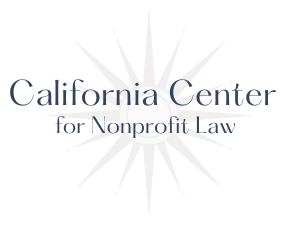
10 Ways to Ensure that Your 501(c)(3) Remains Compliant this Election Year
As our country’s election draws near, 501(c)(3) organizations must follow the rules governing their tax-exempt status, including those related to political activities. While some charitable organizations may wish to engage in nonpartisan activities, they must be cautious about activities that might jeopardize their tax-exempt status.
As our country’s election draws near, 501(c)(3) organizations must follow the rules governing their tax-exempt status, including those related to political activities. While some charitable organizations may wish to engage in nonpartisan activities, they must be cautious about activities that might jeopardize their tax-exempt status. Any suspected violation of the law in this regard could lead to costly investigations and, ultimately, the loss of the organization’s tax-exempt status. Therefore, here are ten ways that you can ensure your 501(c)(3) organization remains compliant this election year:
1. Do not contribute to a political campaign fund.
2. Do not make statements – verbal or written – favoring or opposing any political party candidate. Your organization can encourage people to vote but not to vote for any specific political party or candidate. Likewise, your organization can take a stance on a particular political or ballot issue. Still, based on that issue, you cannot express support for or against a candidate for public office.
3. Do not post a hyperlink on your organization’s website or social media page to a specific candidate for public office.
4. Do not host a speaking opportunity or debate for one candidate or candidates of one political party and not the other. You can host a debate or forum for all candidates for a particular public office or who are running in an election, but you must treat all candidates equally and fairly. In other words, they must all have the same opportunity to attend and the same amount of time to speak to the audience.
5. Do not use any organizational resources for personal political activities. Members of organizations can engage in prohibited political activities personally outside of their organizational affiliations. However, they cannot use any organizational resources to do so. Organizations should have clear policies in place to distinguish between actions taken personally and actions taken in the organization’s name.
6. Do gather candidate opinions on various issues and prepare voter information guides. Your organization can survey all candidates on various issues and publish their stances on those issues, so long as it treats all candidates equally.
7. Do continue to advocate for the issues central to your organization’s mission. While you cannot engage in prohibited political activity, nothing prevents your organization from continuing to advocate for your organization’s mission, just as you would during a non-election year.
8. Do conduct nonpartisan “get out the vote” or voter registration drives. These activities are permissible so long as there is no favoring of one candidate or party over another.
9. Do educate voters on political issues that elections may impact and that pertain to your organization’s mission.
10. Do establish an affiliated 501(c)(4) organization to conduct partisan activities as a secondary activity. Although there are some restrictions on these organizations, a 501(c)(4) organization may provide a charitable organization with a means of still participating in political activity.
Call the California Center for Nonprofit Law Today
If you need legal advice or assistance, we are here to help. Contact an experienced nonprofit lawyer today. Call the California Center for Nonprofit Law offices at (949) 892-1221, email us at info@npolawyers.com, or contact us online for more information today. We offer a wealth of experience handling the unique legal issues that nonprofit organizations routinely face.
